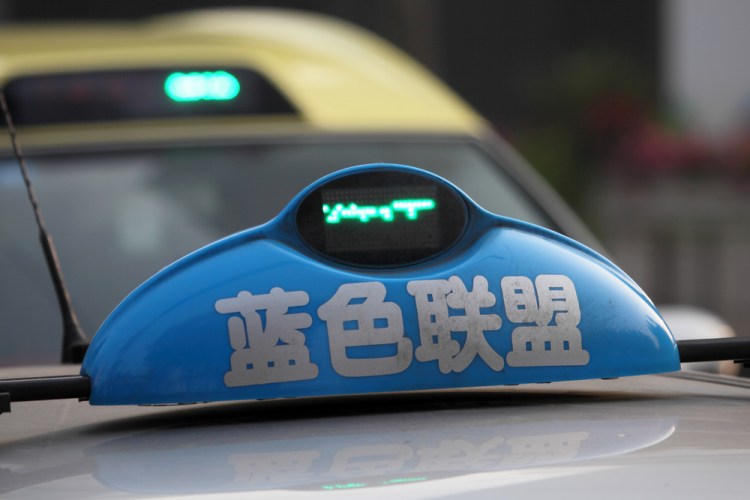As Uber comes under fire both at home and abroad, Alibaba’s largest investor SoftBank has invested $250 million taxi app GrabTaxi, adding the Southeast Asian front runner to its investment family that already includes both China and India’s strongest taxi app competitors.
The deal makes SoftBank the biggest investor in GrabTaxi, which now spans six countries in Southeast Asia including Singapore, Malaysia, Vietnam, Thailand, Indonesia and the Philippines. They currently claim to have 500,000 active users from 2.5 million downloads, though CEO and cofounder Anthony Tan told Technode his goal is to have a “few hundred million people use the app each day.”
SoftBank holds a 36.7 percent stake in Alibaba Group, making it their largest investor. In turn, Alibaba backs one of China’s taxi app front-runners, Kuaidi Dache, which boasts over 150 million riders in 350 cities.
Earlier this year SoftBank invested $210 million in New Delhi-based OlaCabs, Uber’s primary rival in India. OlaCabs continues to operate in India, according to a report from the Hindustan Times, despite being included in a blanket ban on taxi apps following an alleged sexual assault by an Uber driver last week.
Softbank’s taxi app investment family
Softbank’s investment family now includes three competitive taxi-apps covering an Asian market of over 3.2 billion people. Despite their recent US$1.2 billion investment round, this poses a formidable challenge to Uber’s globalisation plans.
GrabTaxi’s Anthony Tan says that loyalty was a big factor in their deal with SoftBank, led by CEO Masayoshi Son. Fourteen years ago Mr. Son invested $2 million in Jack Ma’s fledgling Alibaba, a stake now worth over 40 billion.
“You want guys like that because you want to win,” said Mr. Tan in an interview with Technode, “he [Son] is very clear in what he wants, and he’s very clear in who he wants.”
Masayoshi Son has previously expressed his intention to build a high-tech ecosystem to rival Silicon Valley. SoftBank is currently an investor in over 1,300 companies world wide, including their $22 billion investment in U.S. wireless carrier Sprint.
The company’s investment in multiple Asian taxi-app companies reflects the gradual consolidation of market players over the past two years. This is particularly true in China, where a previously large group of local competitors have now thinned to two brands, Alibaba’s Kuaidi Dache, and Tencent-backed Didi Dache.
“In China, there were like 30 [taxi apps], and now there are two,” says Mr. Tan. “That happened in just two years here. I think the world will move that way.”
Collecting local taxi-apps vs. Uber’s globalisation model in Asia
Uber has faced considerable roadblocks in their globalisation. Along with troubles back home and an official ban in New Delhi, Uber has experienced backlash in the Netherlands, Germany, Spain, Thailand and Toronto.
In a blog post this week, CEO Travis Kalanick said that the company has experienced “growing pains,” but that their recent $1.2 billion funding round will be used to “make substantial investments, particularly in the Asia Pacific region.”
One of the primary differences between Uber’s market entry and local starters such as GrabTaxi and Kuaidi is their relationship with local governments. According to GrabTaxi CEO Anthony Tan, the company not only works with local authorities in several countries for access to police records, they have also accepted funding directly from the Singapore government.
“Governments in Asia can decide overnight whether to crush you or not. It’s like that in China, and its like that in South East Asia. Governments have a disproportionate amount of power over business.”
Mr. Tan admits that the credibility of drivers will continue to be an issue, and that GrabTaxi is still consistently banning drivers from its fleet. But he says the cooperation with authorities has allowed them to get a head start over other competitors on important issues, including background checks.
“Our drivers are banned every day, whoever even flirts with a passenger is banned,” says Mr. Tan, who claims their work with authorities has prevented previous sex offenders from applying as drivers in the past.
Like GrabTaxi, Kuaidi has also carved out a competitive advantage by working closely with government regulators in China. India’s OlaCabs is an outlier in Softbank’s taxi app investment family in this aspect. This week they were swept up in Uber’s India ban on taxi apps. Even though both companies appear to still be operating, their future is murky considering the movement against taxi-apps is gaining international momentum.
“All Out War” for taxi app services in Asia
Despite issues with volatile Asian governments, Uber has still led a largely successful expansion 250 international cities and over 1,000 employees based overseas. Given the speed of their expansion over the past two years and their recent funding boost, they continue to be the dominant force globally.
“They’re [Uber] clear and we’re clear that it’s going to be an all out war,” says Mr. Tan, “but I think this dichotomy is often overplayed. For us it’s very clear, we need to stay humble and stay true to why we started this.”
The Singapore-based startup is planning on channeling SoftBank’s $250 million investment into new high-tech talent. Mr. Tan travelled to China this week with the aim of sourcing new high-tech staff and meeting with Chinese mentors, including Qunar and B series leaders GGV Capital.
This story originally appeared on TechNode. Copyright 2014


